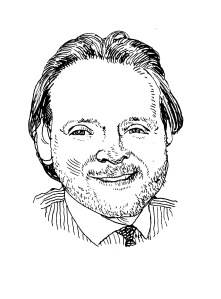With Current Tax Rates Ending, Capital Gains Taxes Threaten to Move Markets
By Jotham Sederstrom January 3, 2012 1:30 pm
reprintsRecently, one of the questions I have been asked most frequently is what factor will have the most significant impact on the investment sales market in 2012. Interest rates could have the most profound impact on our market, particularly if they rise more quickly and to a greater degree than most people expect (which is not an outlandish assumption), but I believe taxes will have the biggest impact on market activity, especially the volume of sales. By taxes, I mean capital gains taxes or at least the anticipation of their rising.

If we look at sales volume trends since the peak of the most recent cycle, we see that 2007 had about $62 billion in sales volume and over 5,000 properties were transferred in the city. In 2009, the sales volume evaporated to an anemic $6.2 billion (a 90 percent drop) and just 1,436 properties were sold. In 2010, dollar volume more than doubled to $14.4 billion and the number of properties sold rose to 1,667. In 2011, final totals (which won’t be available until mid-January) will likely show very healthy increases in both categories with dollar volume well above $20 billion and the number of buildings sold well over 2,000 for the year.
While these increases have been impressive, both metrics are still about 60 percent below where they were at the peak. They also remain below long-term trend lines, meaning that natural market forces will exert upward pressure on both the dollar volume of sales and the number of buildings sold in 2012.
However, we have an externality that will exert even more upward pressure on sales volumes, which is the anticipated increase in capital gains tax rates in 2013.
We observed this same dynamic in 2010, when dozens of our clients opted to sell to beat an increase in capital gains taxes anticipated in 2011. Even though this did not come to pass, many sellers placed properties on the market in the spring and summer attempting to effectuate a sale before year’s end. As a result, the activity in the fourth quarter of 2010 experienced a huge spike and represented the highest quarterly sales total going back to 2008.
Remarkably, the activity in 4Q10 would have been even greater had a greater number of sellers acted more quickly. We had dozens of clients come to us in the fourth quarter (after speaking with their accountants) looking to put properties on the market and close before year’s end. Many of these late arrivals to the market were unable to sell by year’s end or were unwilling to take the haircuts necessary to effectuate such a fast closing. Fortunately for them, the rates stayed unchanged but few believe that will be the case in 2013.
Right now it appears President Obama has a better than 50 percent chance of being re-elected, notwithstanding poor approval ratings, a high unemployment rate and an economy stuck in quicksand. If he is re-elected, some pundits expect that capital gains rates could increase to as high as the ordinary income rate. Even if a Republican is elected, many expect the capital gains rates to escalate as they are considered “rich people’s taxes” and may have to be sacrificed to achieve other objectives. History shows this has happened before. In the 11 years from 1922 to 1933 the maximum capital gains rate was 12.5 percent. In 1934-35, it was raised to 31.5 percent and in the following two years it was raised to 39 percent. This was the response Franklin D. Roosevelt (an Obama hero) had to the deficits facing the country after the Depression.
If sellers are contemplating a sale within the next few years, now is the time to take action. This sounds like a self-serving comment from someone who makes a living selling properties, but who is willing to bet that rates won’t be much higher in 2013? With 10-year cumulative deficits at such high levels added to an existing debt load of $14 trillion, I am certainly not willing to make that bet.
rknakal@masseyknakal.com
Robert Knakal is the chairman and founding partner of Massey Knakal Realty Services and in his career has brokered the sale of more than 1,175 properties, having a market value in excess of $7.8 billion.



